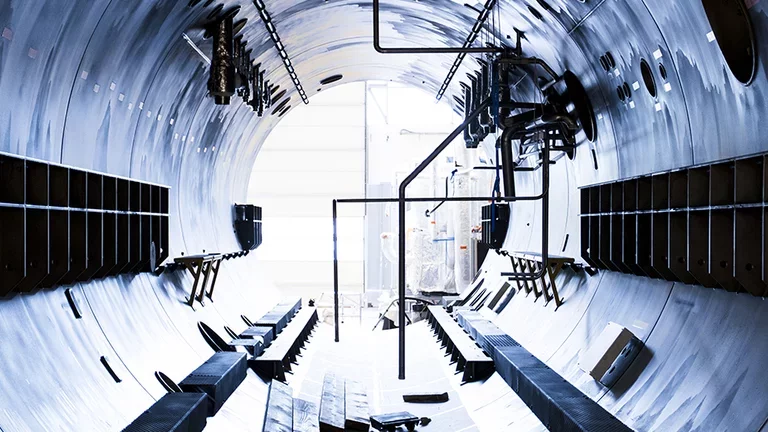Two major successes in extreme cryogenics for scientific research
- Industry

The research of the ITER project and its related project JT-60SA on fusion aims to develop know-how in this new source of energy to meet the challenge of increasing energy needs. Air Liquide will provide extreme cryogenic systems for these two major projects. The total value of these equipment sales contracts will reach over €100million.
Based near Marseille, in France, the ITER project plans the creation of an experimental reactor intended to illustrate the scientific and technical feasibility of fusion. This process generates little waste and eliminates any risk of reactor runaway. To obtain the very powerful electromagnetic fields necessary to confine fusion, superconducting magnets must be used, which only work at extremely low temperatures.
For this project, Air Liquide will provide the biggest centralised refrigeration system ever built. This cryogenic equipment is essential for maintaining an extremely cold temperature for the 10,000 tonnes of superconducting magnets used on the Tokamak. This sophisticated scientific instrument confines the plasma that makes it possible to achieve the conditions necessary for controlled fusion. This closed circuit refrigeration system is based on the properties of liquefied helium, whose temperature is close to the lowest possible temperature 0 K, or - 273°C, called "absolute zero". Between the end of 2015 and the beginning of 2017, Air Liquide will install three refrigerators for a global cooling capacity of 75 kWat 4.5 K, or - 269 °C.
The purpose of the JT-60SA project, a Tokamak-style infrastructure, based in Naka in Japan, is to support the ITER project's research activities on fusion by working on the capacity to control and maintain the plasma for several hours. JT-60SA is led by the Japanese Atomic Energy Agency (JAEA) in collaboration with the French organisation CEA. For this project, Air Liquide will commission, in 2015, a helium refrigeration system, intended to cool the Tokamak.
François Darchis, Senior Vice-President and a member of Air Liquide’s Executive Committee, commented:
"We would like to thank ITER Organisation and the Alternative Energies and Atomic Energy Commission in France for their trust on these two ambitious projects. After the CERN's LHC and Kstar in Korea, these projects once again prove our capacity to meet major scientific challenges by supplying very high tech systems. This means Air Liquide is involved in significant international scientific projects that will shape our future and contribute to the development of tomorrow's energy solutions."
